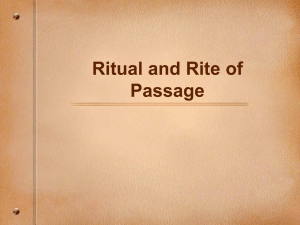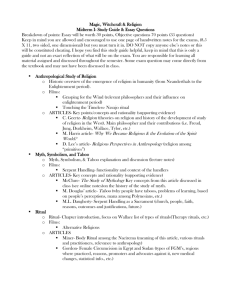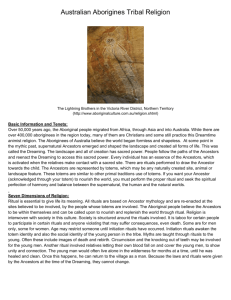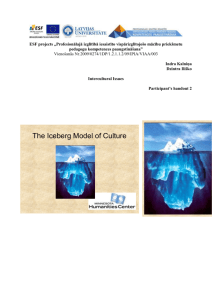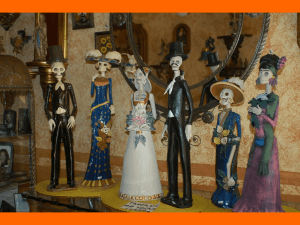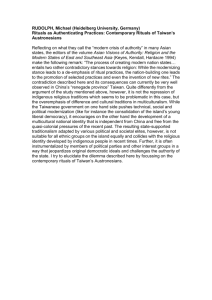ritual
advertisement
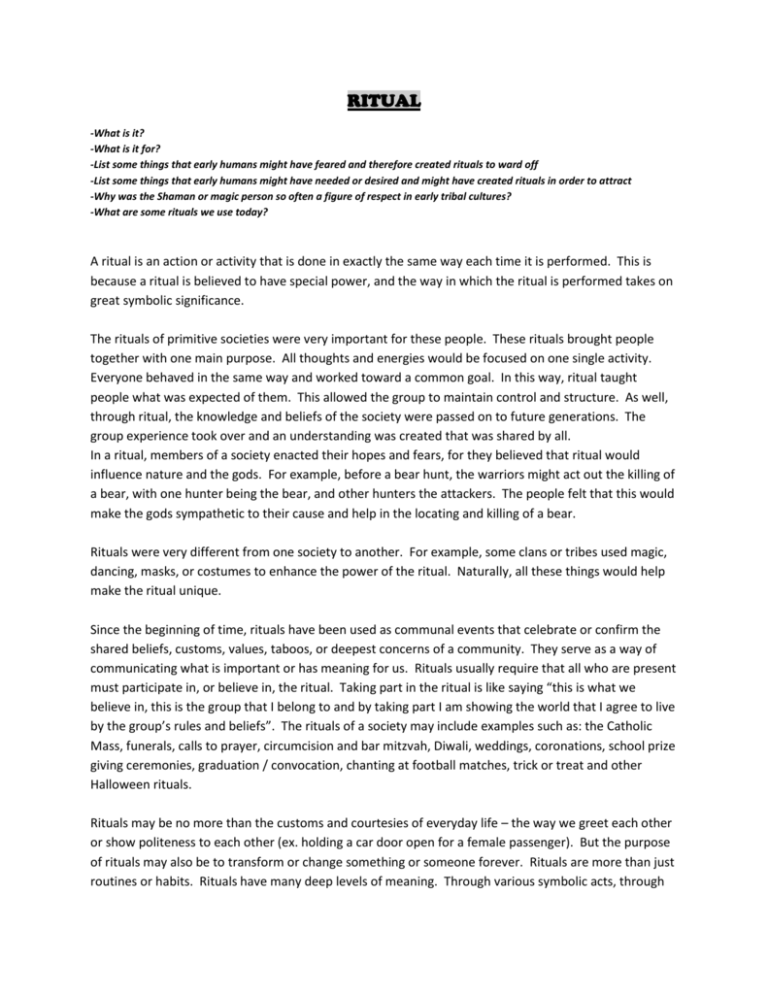
RITUAL -What is it? -What is it for? -List some things that early humans might have feared and therefore created rituals to ward off -List some things that early humans might have needed or desired and might have created rituals in order to attract -Why was the Shaman or magic person so often a figure of respect in early tribal cultures? -What are some rituals we use today? A ritual is an action or activity that is done in exactly the same way each time it is performed. This is because a ritual is believed to have special power, and the way in which the ritual is performed takes on great symbolic significance. The rituals of primitive societies were very important for these people. These rituals brought people together with one main purpose. All thoughts and energies would be focused on one single activity. Everyone behaved in the same way and worked toward a common goal. In this way, ritual taught people what was expected of them. This allowed the group to maintain control and structure. As well, through ritual, the knowledge and beliefs of the society were passed on to future generations. The group experience took over and an understanding was created that was shared by all. In a ritual, members of a society enacted their hopes and fears, for they believed that ritual would influence nature and the gods. For example, before a bear hunt, the warriors might act out the killing of a bear, with one hunter being the bear, and other hunters the attackers. The people felt that this would make the gods sympathetic to their cause and help in the locating and killing of a bear. Rituals were very different from one society to another. For example, some clans or tribes used magic, dancing, masks, or costumes to enhance the power of the ritual. Naturally, all these things would help make the ritual unique. Since the beginning of time, rituals have been used as communal events that celebrate or confirm the shared beliefs, customs, values, taboos, or deepest concerns of a community. They serve as a way of communicating what is important or has meaning for us. Rituals usually require that all who are present must participate in, or believe in, the ritual. Taking part in the ritual is like saying “this is what we believe in, this is the group that I belong to and by taking part I am showing the world that I agree to live by the group’s rules and beliefs”. The rituals of a society may include examples such as: the Catholic Mass, funerals, calls to prayer, circumcision and bar mitzvah, Diwali, weddings, coronations, school prize giving ceremonies, graduation / convocation, chanting at football matches, trick or treat and other Halloween rituals. Rituals may be no more than the customs and courtesies of everyday life – the way we greet each other or show politeness to each other (ex. holding a car door open for a female passenger). But the purpose of rituals may also be to transform or change something or someone forever. Rituals are more than just routines or habits. Rituals have many deep levels of meaning. Through various symbolic acts, through the participation and belief of those who are present, it is imagined that some lasting change can be made. In the Catholic Mass, for example, the bread and wine become transformed into the body and blood of Christ. In a wedding ceremony, a spinster or a bachelor becomes a bride or a groom- a wife or a husband. In many societies there are rituals or rites of passage which transform boys into men and girls into women. The ritual is a way of showing that from now on this person has joined the world of adults and left childhood behind. Ritual is very important for students of drama. For one thing, early primitive rituals were the beginning of formal theatre. The duties of the priest and other participants in the ritual gradually became roles taken on by actors. The other members of the group went from being worshippers to being an audience. As well, for students of drama, rituals offer a tremendous source of material for creative work. By re-enacting formal rituals that are found throughout the world, you gain an understanding of the people with whom rituals began. Rituals share common features with theatre. They allow us to take on the characteristics of bigger / better / different characters. They are both social rather than private events. They both use symbols and symbolic gestures. They both comment on and explain the culture to which they belong.
